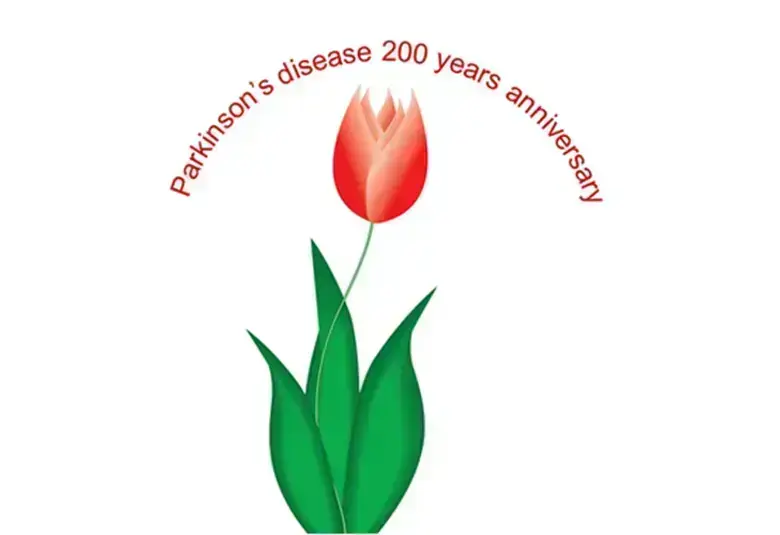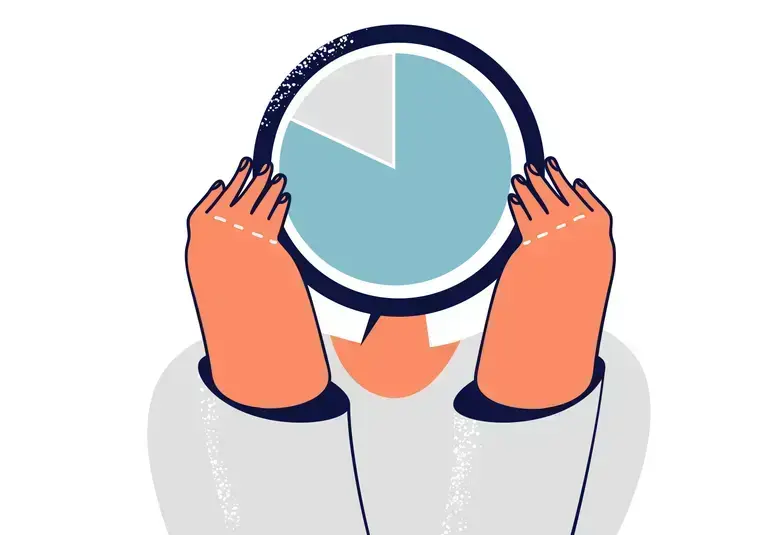We should tell our patients to sleep well, eat well and exercise more. A surprising prescription, or perhaps simply common sense – backed by impressive evidence. A cross-disciplinary approach was on the agenda at the ECNP 2019 Expert Science Exchange on reducing the burden of non-communicable diseases. It was also an invigorating work-out, and not at all conducive to sleep.
우리는 환자에게 숙면과 건강한 식사, 그리고 더 많은 운동을 권해야 합니다. 단순한 상식일 수도 있는 이 놀라운 처방을 뒷받침하는 인상적인 근거가 있습니다.
2019년 유럽정신약물학회(ECNP 2019)의 전문가 과학 교류에서는 비전염성 질환 부담 완화에 관한 의제로 여러 학문 분야에 걸친 접근법이 논의되었는데, 지루함의 기색은 조금도 없는 활기 넘치는 시간이었습니다.
Globally, 71% of deaths are now from non-communicable diseases, notably cardiovascular conditions, cancer, diabetes and chronic lung disorders.1 Affective disorders, anxiety and schizophrenia are major risk factors and linked to the increased overall morbidity and mortality.
현재 심혈관 질환, 암, 당뇨병, 만성 폐 질환과 같은 비전염성 질환이 전 세계 사망 원인 중 71%를 차지하고 있습니다.1 정서 장애, 불안, 조현병이 주요 위험 인자이며, 전반적인 이환율 및 사망률 증가와 연관되어 있습니다.
“Sleep is the golden chain that binds health and our bodies together”, wrote the English dramatist Thomas Dekker four hundred years ago. And perhaps he was right.
400년 전, 영국의 극작가 토머스 데커(Thomas Dekker)는 “수면은 건강과 신체를 연결해주는 황금사슬”이라고 말했습니다. 아마도 그의 말이 맞을 것입니다.
“Sleep is the golden chain that binds health and our bodies together” – Thomas Dekker, 1572-1632
“수면은 건강과 신체를 연결해주는 황금사슬이다” – 토머스 데커, 1572~1632
Insomnia – defined as difficulty in initiating or maintaining sleep that has persisted for three months or longer – seems to have a causal role in many illnesses, increasing the risk of disorders that extend from hypertension and diabetes to depression.2
불면증은 잠에 들거나 수면을 유지하기 어려운 상태가 3개월 이상 지속되는 증상으로 정의되며, 다양한 질병의 원인으로 작용하여 고혈압 및 당뇨병부터 우울증에 이르는 여러 질환의 위험을 증가시키는 것으로 보입니다.2
Indeed, there is a case for considering sleep a vital sign in psychiatry -- as important as blood pressure in cardiology. The appearance of sleep problems can be a precursor of relapse, and may be one of the last symptoms to remit.
실제로 심장학에서 혈압을 중요하게 고려하듯 정신의학 분야에서 수면을 하나의 활력 징후(vital sign)로 여겨야 할 이유가 있습니다. 수면 문제의 발생은 질환 재발의 전조 증상이자 관해를 위한 마지막 증상 중 하나일 수 있습니다.
Tackling insomnia and sleep apnea
불면증 및 수면 무호흡증의 치료
In people with depression and insomnia, treating the sleep problem also benefits the mood disorder.3 And this is an important consideration, since we have an effective, evidence-based and inexpensive intervention in cognitive behavior therapy for insomnia (CBTI). Participants take the course online, but are given individual guidance by a therapist.
우울증과 불면증을 겪는 환자의 경우, 수면 장애의 치료가 기분 장애 완화에 도움이 될 수 있습니다.3 이러한 발상은 매우 중요합니다. 불면증의 인지 행동 치료(CBTI)에 적용할 수 있는 효과적이고 비용이 적게 드는 근거 중심의 중재 방법이 존재하기 때문입니다. 이 치료 프로그램은 온라인으로 참여하지만, 치료 전문가로부터 개인별 지침을 받을 수 있습니다.
Use continuous positive airway pressure (CPAP) ventilation to treat sleep apnea in people with schizophrenia who are also obese
비만인 조현병 환자의 수면 무호흡증 치료를 위한 지속적 기도 양압술(CPAP) 환기법 적용
In people with schizophrenia who are also obese, obstructive sleep apnea can be troublesome. Screening for the problem involves a simple questionnaire, followed if necessary by oximetry at home and a night in the sleep laboratory.
비만인 조현병 환자의 경우, 폐쇄성 수면 무호흡증이 문제가 될 수 있습니다. 이 증상을 검사할 때는 간단한 설문을 실시하며, 필요시 집에서 산소측정법을 이용하거나 수면 검사실에서 하룻밤을 보내기도 합니다.
The apnea is eminently treatable using continuous positive airway pressure (CPAP) ventilation. A pilot study from Australia has found that CPAP in people who have schizophrenia and obstructive apnea improves not only sleep but also cognition and hypertension.4
무호흡증은 지속적 기도 양압술(CPAP) 환기법을 통해 충분히 치료가 가능합니다. 호주에서 이루어진 예비 임상시험에서는 조현병과 폐쇄성 무호흡증을 겪는 환자에게 지속적 기도 양압술을 적용하면 수면이 개선될 뿐만 아니라 인지기능 및 고혈압에도 도움이 된다는 사실이 밝혀졌습니다.4
In optimizing sleep quality in people with mental health problems, it might also be helpful to refer on any bladder and prostate problems that lead to night-time waking.
정신질환자를 위해 수면의 질을 최적화하는 경우, 야간에 잠을 깨게 하는 방광 및 전립선 문제가 없는지 고려하는 것도 도움이 될 수 있습니다.
A focus on nutrition
영양 상태에 대한 집중
The implications of adverse early life experience for adult mental health are well known, as is the possibility that an initial vulnerability may require a “second hit” before it is expressed.
초기 취약성이 표현되기 이전에 ‘2차 타격(second hit)’이 필요할 가능성이 있기는 하지만, 성인기 이전의 부정적 경험이 성인의 정신 건강에 미치는 영향은 잘 알려져 있습니다.
Micronutrients are not only building blocks but also signaling molecules
미량영양소는 신체 구성물질이기도 하지만, 신호전달물질이기도 합니다.
The Expert Science Exchange heard of preclinical studies suggesting that nutrition may modulate the effects of early life events, perhaps through epigenetic mechanisms. The possible role of vitamins B6, B12 and folate, and of omega-3 and omega-6 fatty acids is being investigated in animal models of stress.
전문가 과학 교류 세션에서 논의된 여러 비임상 연구에서는 영양 섭취를 통해 삶의 초기에 발생한 사건의 영향이 조정될 수 있음이 시사되었는데, 이는 아마도 후성유전적(epigenetic) 메커니즘을 통해 가능한 것으로 보입니다. 현재 동물 스트레스 모델 연구를 통해 비타민 B6, B12, 엽산, 오메가-3 및 오메가-6 지방산 등이 수행할 수 있는 역할을 조사하고 있습니다.
Micronutrients are not only building blocks but also signaling molecules. Their effects might be mediated through inflammatory pathways, and there is now great focus on obesity as a pro-inflammatory state. We know that connectivity in the brains of children born to obese mothers differs from that in neonates with normal-weight mothers.5
미량영양소는 신체 구성물질이기도 하지만, 신호전달물질이기도 합니다. 미량영양소의 효과는 염증 경로를 통해 매개될 수 있는데, 현재는 전염증성(pro-inflammatory) 상태로서의 비만에 특히 주목하고 있습니다. 비만인 산모에게서 태어난 아기의 뇌 연결성이 정상 체중인 산모가 출산한 아기와 다르다는 사실은 이미 알려져 있습니다.5
There is now increasing evidence that obesity in adults relates to brain pathology, including that is seen in dementias and depression.6 Obesity, especially visceral obesity, “metastasizes” to the brain in the sense that the insulin resistance and inflammation associated with overweight is linked to loss of brain volume and connectivity.
최근에는 성인의 비만이 뇌 병리학과 관련이 있다는 근거가 늘어나고 있으며, 치매 및 우울증에서도 이러한 근거를 찾아볼 수 있습니다.6 과체중과 관련된 인슐린 저항 및 염증이 뇌 부피 및 연결성의 손실과 관련이 있다는 점에서 비만, 특히 내장 비만은 뇌로 ‘전이(metastasizes)’된다고 볼 수 있습니다.
Obesity is hazardous for the brain
비만은 뇌에 해롭습니다.
Indeed, if depression is a disorder of drive and the experiencing of pleasure, so too is obesity. Both involve abnormal cognitive control, and obesity can be viewed as brain disorder.
우울증이 즐거움을 다루고 경험하는데 관련된 장애라고 한다면, 비만도 마찬가지입니다. 우울증과 비만 모두 비정상적 인지 제어를 수반하며, 비만은 뇌 장애로 볼 수도 있습니다.
Exercise versus obesity
운동과 비만
Obesity can be hazardous for the brain, and its adverse effects increase with duration. The other side of the coin is exercise, which seems capable of inducing brain trophic factors that benefit both brain volume and function – although probably only if undertaken with an intensity that leads to breathlessness. In those who have already developed depression, a meta-analysis adjusting for publication bias now shows that exercise has antidepressant effects.7
비만은 뇌에 위험한 영향을 미칠 수 있으며, 비만의 부정적 영향은 시간이 흐름에 따라 증가합니다. 반면 동전의 다른 면이라고 할 수 있는 운동은 뇌 부피 및 기능에 유익한 작용을 하는 뇌 영양 인자(brain trophic factor)를 유도하는 것으로 보입니다. 단, 숨이 찰 만큼 강도를 높일 경우에만 해당됩니다. 출판 편향을 보정한 메타 분석의 결과에 따르면 이미 우울증이 발병한 환자에게 운동이 항우울성 효과를 발휘하는 것으로 나타났습니다.7
The content of this article was derived from an Expert Science Exchange session sponsored by Upjohn.
본 기사의 내용은 업존(Upjohn)의 후원으로 진행된 전문가 과학 교류 세션에서 논의된 내용입니다.
본 자료는 Global Lundbeck 의학부에서 선별한 콘텐츠이며, 한국룬드벡의 의견과 다를 수 있습니다




